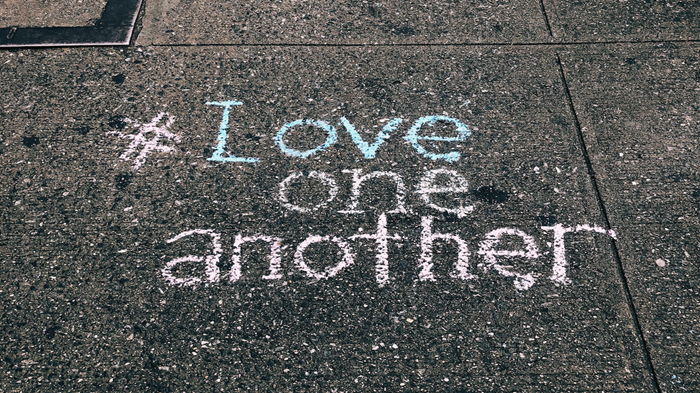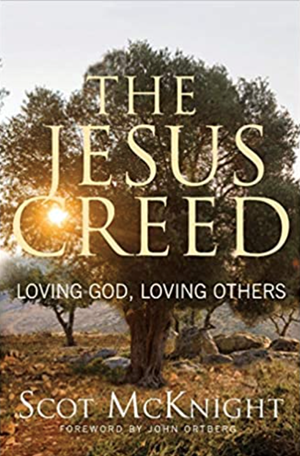When Did Hatred Become OK?

A direct question, I’m sorry to say, must now be asked of Christians. Are we trapped in hatred? If we define “hatred” as dictionaries do – “intense dislike or ill will” – it would not be hard to find a sizable minority in America who actually hate Donald Trump. So, do you hate Trump if it means “intense dislike”? That question plucks a noisy nerve in the conscience.
Is hatred more than intense dislike? Yes. If we dig a bit deeper and consider Robert Sternberg’s three-pronged analysis of hatred (from Wikipedia’s summary), we get more nuance but I’m not sure the haters shift. Sternberg says hatred is marked by “a negation of intimacy, by creating distance when closeness had become threatening” and “an infusion of passion, such as fear or anger,” and then completed by “a decision to devalue a previously valued object.” Which leads to three questions: Do you find yourself repelled by the man? Do you find an infusion of the passions of fear or anger when you see him or hear him? Do you now degrade him and devalue him as a person?
Perhaps you will say that it’s righteous indignation and not hatred. All but the blindly devoted have reasons to disagree with the President and his actions and his decisions and what manners he has left, and sometimes with deep passion. So, righteous indignation has merit as a defense, in which case the issue is not the person but the policies, the decisions, and platform. Or the damage he has done to the nation, or his adolescent use of Twitter, or his despicable treatment of women, or … or … . Maybe you explain this hatred by Girard’s scapegoat theory, and that might help.
My take on the situation in America, however, is that most that I observe – a high percentage of the FB feed – are not infected simply with righteous indignation or scapegoating. It’s gone deeper to actual hatred. It has boiled over into the non-stop intoxication with posts and updates and tweets. It’s become all-day amgydala stimulation.
As a theologian it is not my passion to adjudicate politics, nor am I educated in or trained in politics. I’ve read enough of politics to know my ignorance, and one source I recommend is Alan Ryan’s On Politics. What I do care about is how infected church folks are with hatred for Donald Trump. It scares me.
Not that I’m for Trump because I’m not. I’m concerned about our Christian character in our response to him. The greatest heroes of the 20th Century who opposed regimes and wanted regime change where not agents of hatred but agents with a firm resolution to work for justice and peace. Their passion did not convert them into agents of hate but agents of dogged determination and tireless work for change. I’m thinking of Dietrich Bonhoeffer, Martin Luther King, Jr., and Nelson Mandela. You may think of others.

May I suggest three considerations for us to respond to our current crisis with Christian character?
First, the A#1 calling of each of us is to love God and to love others. I call this the Jesus Creed and we need to repeat its words daily. Several times perhaps. A daily habit might remind us of our calling and temper our social media outbursts of anger and hatred and even rage. Here’s the Jesus Creed:
Jesus answered, “The first is, ‘Hear, O Israel: the Lord our God, the Lord is one; you shall love the Lord your God with all your heart, and with all your soul, and with all your mind, and with all your strength.’ The second is this, ‘You shall love your neighbor as yourself.’ There is no other commandment greater than these.” (from Mark 12:29-31)
If you recite this often enough it will worm its way into your bones and your hatreds will be exposed (among other bad habits).
But Jesus, as he often does, takes this to a much deeper level: he calls us to love our enemies, and I’m certain that many Christians today see Trump as the enemy. Is there any doubt they do? Since there is none, we can move on to a second consideration. The way of the empire gets him preaching: “You have heard that it was said, ‘You shall love your neighbor and hate your enemy.’ But I say to you, Love your enemies and pray for those who persecute you, so that you may be children of your Father in heaven” (Matthew 5:43-44). Love and then pray, that’s the way of Jesus. Hatred is something we have to put in our past because we have learned the way of love in following Jesus. As the apostle Paul reminded one of his audiences, “For we ourselves were once foolish … hating one another” (Titus 3:3).
This may well enflame some folks but, third, some words of an early Christian leader (said in the crucible of being hated by others) must be considered and here’s why: the Christian is to be known for love, not hatred. Our sibling relationships are strained by what many of us see in Trump’s history and practice, but are we not at least to learn from our non-hatred of our ecclesial siblings not to hate those who are not, too? Do we not learn our relations in the church and spread them into society?
1 John 2:9 Whoever says, “I am in the light,” while hating a brother or sister, is still in the darkness.
1John 2:11 But whoever hates another believer is in the darkness, walks in the darkness, and does not know the way to go, because the darkness has brought on blindness.
1John 3:15 All who hate a brother or sister are murderers, and you know that murderers do not have eternal life abiding in them.
1John 4:20 Those who say, “I love God,” and hate their brothers or sisters, are liars; for those who do not love a brother or sister whom they have seen, cannot love God whom they have not seen.
Those whose passions are absorbed with hatred are defined by the other and locked down to the other, not defined or locked down by the Other who showed us the path of love for the other on a cross.
Jesus Creed is a part of CT's
Blog Forum. Support the work of CT.
Subscribe and get one year free.
The views of the blogger do not necessarily reflect those of Christianity Today.


















